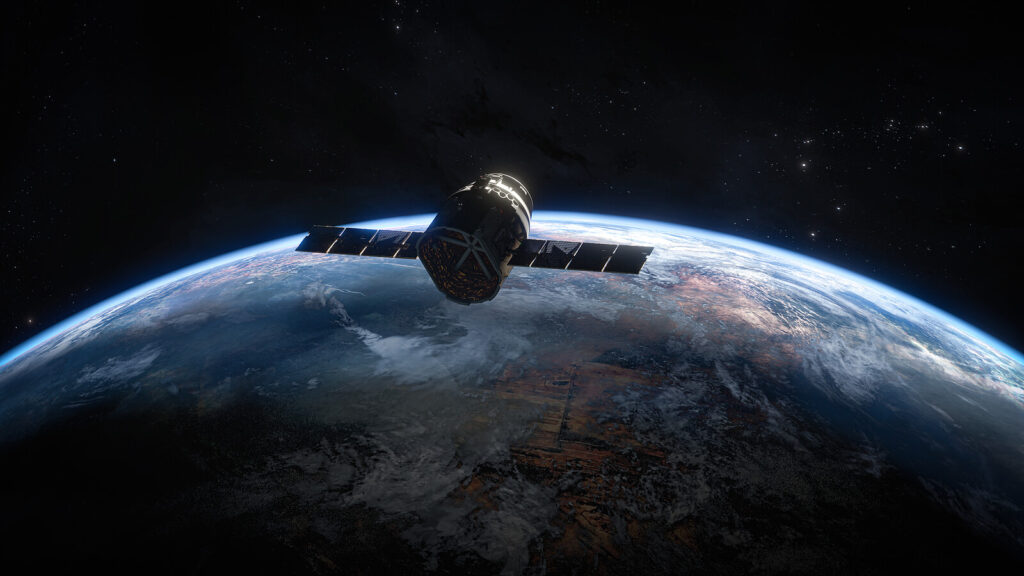Congress finished work last month on the 2023 National Defense Authorization Act and sent it to President Biden for signature. But during the final frenzy to complete this annual defense policy and priorities legislation, lawmakers did something particularly important that will likely go unnoticed by most Americans: while adding to the U.S. Space Force budget, Congress decided to keep a tight rein on space policy and organization decisions.
The House provision that would have required the Department of Defense to create a Space National Guard — a move pushed by senior National Guard officers — was stripped from the bill during House and Senate negotiations. This was an essential act of congressional oversight that hopefully will continue as the new Congress takes charge.
Increased congressional scrutiny is vital, especially now that we have senior generals and staffs in USSPACECOM, the new unified space command, and U.S. Space Force, a new military service equivalent to the Army and Navy, pushing the limits of what the U.S. should be doing in space and looking for ways to expand their organizations.
Many have expressed doubts about the value of USSPACECOM and the U.S. Space Force. Initially, the military services, the Joint Chiefs of Staff and the Office of the Secretary of Defense were opposed. In fact, Gen. John Raymond, the first commander of the U.S. Space Force, wrote an excellent article in 2017 laying out the argument against separate space organizations. Full disclosure — I have been opposed to their formation since the idea was first mentioned.
U.S. military focus on space goes back decades
The push for space-focused military commands began decades ago when a quasi-independent U.S. Space Command was stood up in 1985 to provide joint command and control for all military forces in space and to coordinate with the other combatant commands. But defense leaders shut it down in 2002 and merged its responsibilities and forces into the United States Strategic Command to achieve a better use of resources.
This made sense since the Army, Air Force and Navy all already had space directorates or commands (e.g., Army Space and Missile Defense Command) focused on what was appropriate for that service to do in space.
Also, the military leaders at the time recognized that creating a separate military service and unified command also would spur more bureaucracy that would lay claim to defense funds and further fragment budgets. Put simply, when you set up a new four-star position and staff, you better have something that truly needs to be done because those folks are not going to sit around idle. They will seek to expand missions and promote threats to justify their existence.
More to the point, anything you try to do in space is expensive and immediately raises the question of opportunity costs –how many planes, ships and divisions won’t be funded to buy questionable space capabilities?
All of which connects back to why Congress opted not to authorize a Space National Guard.
Doing so would create another two- or three-star command and staff in the National Guard. The space forces do require a structure to house military reserve personnel to reinforce the active force. But a more cost-effective way is to establish a space division within the existing Army and Air National Guards. This could be done at the one-star or colonel level with smaller staffs.
Increased pressure to base weapons in space
So far, the Biden White House has directed the military to focus primarily on defensive space issues such as hardening our space assets and building in redundancy. But now that the Department of Defense has two senior military commands focused on space as a contested, war fighting domain, the defense policy community will face increasing pressure to base weapons in space.
The military’s 2020 budget included $150 million for research into putting missile defense assets in space to attack enemy nuclear missiles in the boost phase. If the U.S. or another nation deploys weapons in space, it would be the first country to do so and would be a disaster for strategic stability. To ensure the credibility of their nuclear deterrents, Russia, China and others could respond by deploying additional and new types of long-range ballistic missiles, as well as missiles employing non-ballistic trajectories that are harder to hit.
Russia and China also would strive to improve their ability to destroy U.S. space-based interceptors, which would greatly increase the threat to the full array of U.S. space assets such as the satellites upon which the Department of Defense depends for command and control of military operations.
Given the implications for strategic stability and the likelihood that such a decision by any nation would set off an expensive space arms race, policy decisions involving space warrant close scrutiny.
It is far more stabilizing and better for national security that Congress remains skeptical about where U.S. space leadership and space policy are headed. Let’s hope the responsible oversight demonstrated in the annual defense bill continues.







